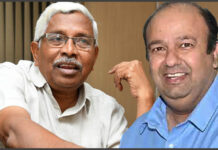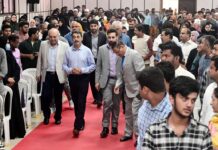
Politics in the country and in the state are revolving around reservations. Even as the date of polling fast approaching, deliberations and volume of allegations on each other by the political leaders also enhanced. Prime Minister Narendra Modi, Home Minister Amit Shah, Congress president Mallikarjun Kharge, Rahul Gandhi, Chief Minister Telangana A Revanth Reddy and several other key political leaders have brought this topic to the fore at one or the other occasion.
One side is trying hard to explain that it does not intend to scrap the reservations provided by the constitution however the other side is convincing people that reservations to certain sections of society are in ultimate danger. These provisions, originally intended to do justice to the socio-economically backward and marginalized communities in the country.
Reservations to SC, ST and OBC communities are provided by the union government and it was mentioned in the Article 15 and 16 of the constitution. The 1st amendment was made in the constitution and this was added to the constitution. Basically, the reservations were recommended because there has been a historical injustice to certain classes of the society in India. However, since those classes were associated with certain castes, it has become a caste reservation of late.
Delhi to Hyderabad, Mumbai to Bengal, Uttar Pradesh to Rajasthan, the topic of reservations is on the forefront of political discourse of all the parties. The discourse is equally heard in Karnataka and Tamilnadu besides Maharashtra and Assam.
To understand better, we need to touch upon few basic details of the Indian Constitution with respect to reservations.
Mention of Reservations in Constitution:
*Reservations are part of the articles mentioned under Fundamental Rights of the Indian
Constitution.
* These are placed in Part-III of the Constitution from Article 12-35.
* Fundamental rights are not limitless and also not sacred- there are some restrictions
* These rights impact legislative and executive activities.
* Fundamental Rights are Magna Carta-.
* Right to Equality are discussed in Article 14 to 18.
* Article 15 (4) – If government provides reservations to SC/ST communities in educational
institutions- it is not against equality. (This was added in the constitution through the 1st
Constitutional Amendment in 1951)
* Article 15 (5) – Providing reservations to OBC communities in Higher Learning Centres is not
against equality. (Included through the 93rd Constitutional Amendment in 2005)
* Consequently, Parliament mad a law in the year 2006 to implement 15 (5).
* A court case was filed against Article 15(5)- Supreme Court stayed the implementation.
Later, in the year 2008, Supreme Court termed it valid. (Ashok Kumar Thakur Vs
Government of India Case)
* Article 16 (3) – Governments have right to provide local reservations in employment.
* Article 16 (4) – Providing reservations to SC-ST communities in employment.
* Article 16 (4) (a) – Reservations for SC – ST in Promotions.
* Article 16 (4) (b) – Reservations are not provided in backlog vacancies.
Additionally: –
Article 45 – Under Directive Principles of State Policy, states have a duty to raise the standards of living and health of backward classes.
Article 39 A – Under Directive Principles of State Policy – states have to ensure justice and free legal aid to Economically Backward Classes.
This is the brief background of the reservations with reference to the constitutional provisions. Based on these guidelines and articles, the reservations have been implemented in education, employment and promotions for a long time. Earlier, it was implemented for 10 years, later got extended in wake of the situation of the communities associated.
India is now at the verge of selecting its new Members of Parliament for the next term and to form a new government, the topic of reservations is once again has become talk of the town. Several doubts are raised over the existence of these reservations by the opposition leaders. Undoubtedly, many of the ruling party functionaries have expressed their dislike and dismay for the presence of reservations and they have openly said that they were against the reservations and this has to end.
It is note-worthy that people have absorbed this narrative very well and weighing their decision based on it. Ultimately, the backward, marginalized communities are seeking justice and need justice. Any party, trying to curtail their constitutional and basic human rights, will have to perish.





